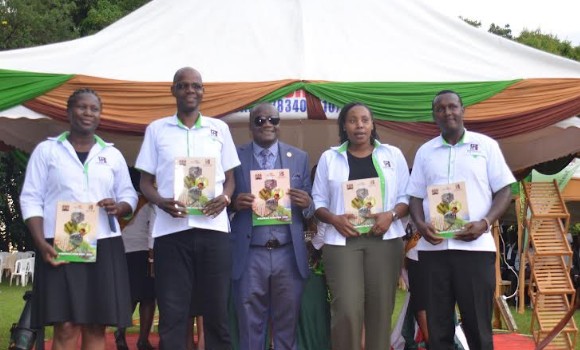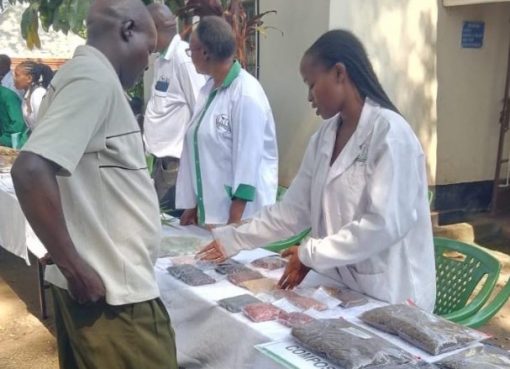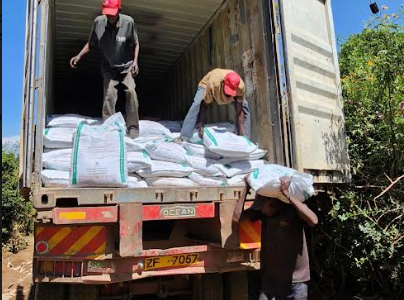South Nyanza Sugar Company Ltd (Sony Sugar) has launched its strategic plan for 2024-2029, setting a transformative course for growth, sustainability, and industry leadership.
The plan, which focuses on agricultural expansion, factory modernisation, financial stability, and market competitiveness, aims to strengthen Sony Sugar’s role in Kenya’s sugar sector.
Speaking as the chief guest at the launch event at the Sony Sugar grounds, the Chairperson of the Kenya Sugar Board of Directors, Eng. Nicholas Gumbo, commended Sony Sugar’s resilience and reaffirmed the government’s commitment to supporting the sugar industry.
Sony Sugar, a key player in the Kenyan sugar industry, has a long-standing history of producing high-quality sugar and related products.
The strategic plan 2024-2029 aims to focus on enhancing Sony Sugar Company’s market positioning and competitive strategy to effectively compete with key industry players in Kenya and in Africa, such as South Africa, Uganda, Mauritius and others.
This includes identifying unique selling points, product differentiation strategies and cost-efficiency measures to strengthen the company’s market share and profitability.
Gumbo emphasised the importance of farmer empowerment, noting that the industry’s focus must shift to those who cultivate sugarcane.
“The focus must shift to the farmers because sugar is not made in factories; it is made in the farms. We want every sugarcane farmer from Migori to Busia and Kwale to benefit from their hard work,” said Gumbo.
He urged Sony Sugar’s leadership to ensure that employees and farmers are at the heart of the implementation of the strategic plan.
The new strategic plan will incorporate environmental sustainability practices, technology adoption, and innovation focused on reducing carbon emissions as well as data-driven decision-making to enhance competitiveness and resilience.
In addition, the plan will also prioritise regulatory compliance, governance transparency and legal challenges, as well as ensure adherence to industry regulation, ethical business practice and governance standards to mitigate risks associated with political interference, corruption and mismanagement.
Addressing concerns about industry reforms, Gumbo reassured stakeholders that the government is keen on ensuring that all programmes, including leasing initiatives, benefit the sugar industry and local communities.
He further stressed that the success of the strategic plan depends on the full support of Sony Sugar’s workforce, stating, “If employees don’t own the strategic plan, then this launch is in vain. They must see the benefits of the plan in their livelihoods.”
Sony Sugar Managing Director Martine Dima outlined the key targets of the five-year plan, which include increasing sugarcane delivery from 1,000 to 2,700 tonnes per day and expanding cane cultivation from 6,100 to 12,100 hectares. The company also aims to optimise factory operations to process 3,000 tonnes of cane per day.
Dima also affirmed that the strategic plan would increase the area under cane by cultivating non-traditional areas like Nyatike, Gem, Rangwe and Kuria areas since they have completed the soil analysis and the areas are suitable to plant canes.
He disclosed that the plan aims to increase the area under cane to produce 410,000 metric tonnes of sugar cane annually to 635,000 metric tonnes in terms of cane deliveries by 2029, a 55 per cent increase.
The MD also described the plan as a living roadmap that would guide the company’s actions and investments, ensuring resilience, efficiency, and stakeholder engagement.
He noted that Sony Sugar is also leveraging on technology and innovation to improve sugar quality, enhance sustainability, and strengthen its competitiveness in both local and regional markets.
The strategic plan is built on four key pillars: customer excellence, operational efficiency, talent development, and financial growth. Both Gumbo and Dima urged all stakeholders, from farmers to policymakers, to support the plan, emphasising that collaboration is key to restoring Sony Sugar’s former glory.
The previous strategic plan (2018-2023) saw a period marked by various challenges, including a decline in sugar cane production, factory inefficiencies and financial constraints; factors that led to missed targets and operational hurdles for Sony-Sugar.
During this period, the sugarcane production declined from 158,179 tonnes in 2019/2020 to 114,572 tonnes in 2020/2021, falling short of the projected targets.
The strategic plan for 2024-2029 aims to build upon these past experiences, leverage on strengths, and address areas for improvement to propel Sony Sugar towards a future of sustainable growth and industry leadership.
Meanwhile, the Secretary General of the Kenya Sugar Board Sony branch, Agwengs Otieno, noted that in the case of factory leasing, clarification and consultations should be done to gap the time period of less than 20 years.
The event, attended by industry leaders, government officials, and farmers, reaffirmed Sony-Sugar’s crucial role in Kenya’s agricultural economy.
By Makokha Khaoya and Beryl Akinyi




